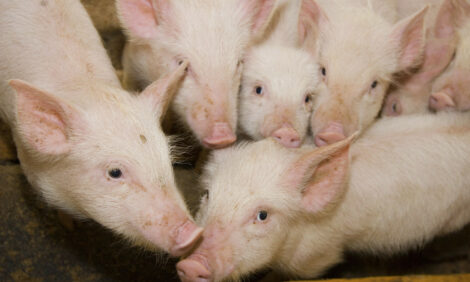



Feeding Trials of Straw Based Feed Supplement for Gestating Sows Now Undeway
CANADA - Feeding trials of a newly developed straw based feed supplement for gestating sows, designed to increase satiety and reduce fighting over feed in group housing are now underway, writes Bruce Cochrane.As part of research being conducted on behalf of Swine Innovation Porc aimed at increasing sow milk yield and piglet growth using low-cost feeds during gestation and lactation, scientists are examining the effects on satiety, behavior, and performance of sows provided a supplemental straw based feed.
Dr Denise Beaulieu, an Assistant Professor in Monogastric Nutrition with the University of Saskatchewan, says scientists are focusing on performance through gestation and lactation, feeding behavior and the amount of feed consumed right after farrowing.
Dr Denise Beaulieu-University of Saskatchewan
We've got five different treatment groups.
We're looking at oat straw and wheat straw and a controlled treatment and then the straw is processed or it's not and we hope to get 20 or 30 sows on per group so ideally we'll be putting about 150 sows on test.
Monitoring, we're looking at reproductive performance and then we're actually going to do a lot of blood tests to see how well they respond to what we call a glucose challenge.
This will help us determine the degree of satiety that they're feeling.
We're also doing some behavioral analysis to see if we can use behavior to have some idea whether or not they feel more or less hungry with the straw in the diet.
So far we have learned they really like to play with the straw.
They're not eating it quite as well as I expected.
When we feed them these really hard pucks, they do eat those eventually and they do like to play with them and that's good because we want them to have something to play with as well so we have learned a lot about getting them to eat the straw along with their regular diet.
It's really interesting how variable the sows are.
Some of them really really like it and some of them, they're just like people, they don't like it.
Dr Beaulieu expects to have results by this fall with a final full report anticipated by late fall or early winter 2017.








